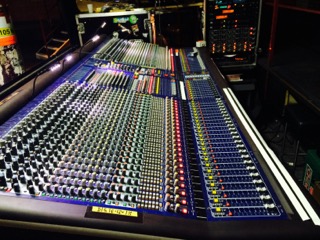


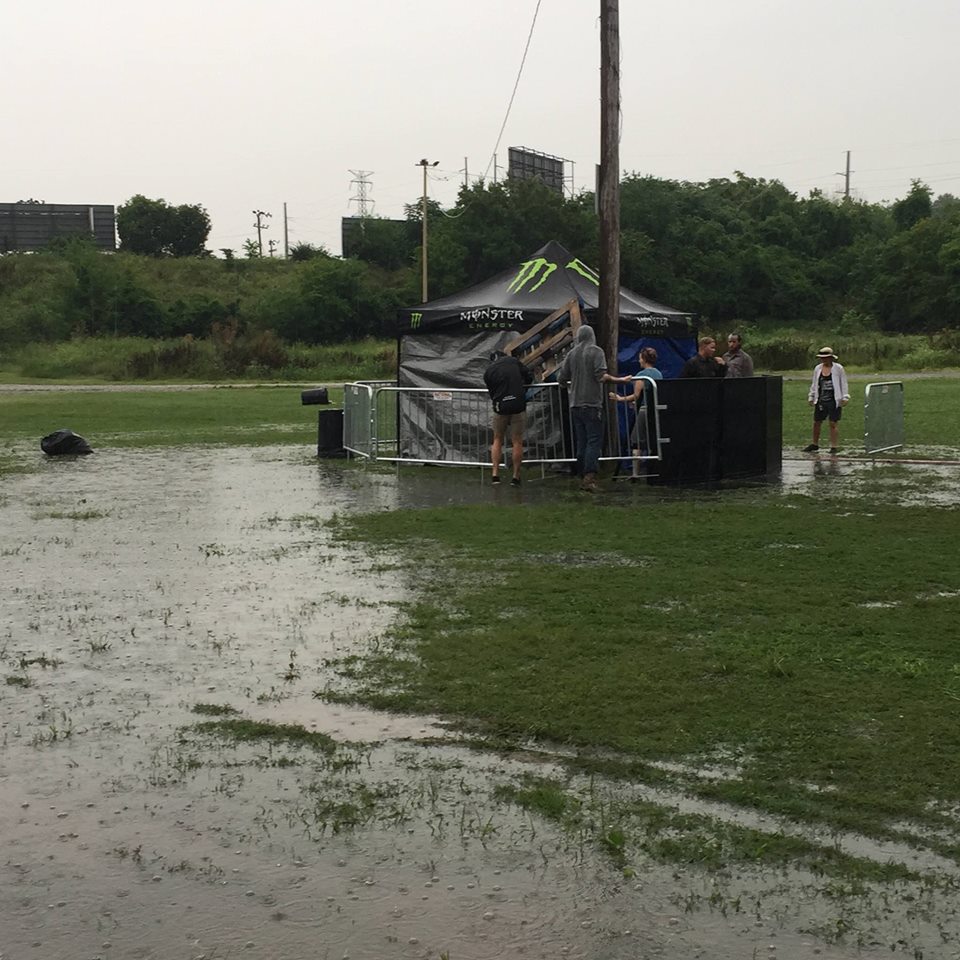
One of my daughters has run away and joined the circus – The Warped Tour that is. (more…)
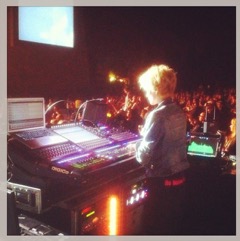
Karen “Keeks” Weigold grew up in Toronto, Ontario (Canada). She was always passionate about arts and spent the first 18 years of her life as a dancer. When the time came to apply for post-secondary education, her love for the entertainment industry pushed her to attend the Toronto Film School’s Sound Industry Program. While at the college, she met artist & producer Dan Hill. Dan offered her an internship in his home studio, and soon she was skipping classes in favor of recording band demos. It was while working at the studio that she was introduced to some live sound techs. By shadowing these techs, Karen got her taste for live sound. Her first live sound gig was at The Big Bop, a now-defunct venue in Toronto. Karen describes her live sound training as being “the hands-on “sink or swim” method.” She believes in taking chances and trying out new things to figure out what works, and what doesn’t. She credits Dan with pushing her into the live world, as he recognized that she thrived on the chaos that is often present at shows.
As a touring freelancer, Karen has worked as front of house, monitor engineer, tour manager and production manager. Her first touring gig was mixing monitors for Ian Thornley of Big Wreck. She was offered this job by her friend Sean Palmer (current FOH for The Used) who was Big Wreck’s FOH at the time. After spending two days working with Karen at The Mod Club, he was so impressed with her work ethic that he offered her the monitor engineer position, even though she had no touring or digital board experience. Never one to be scared of a challenge, Keeks prepared by reading the Avid SC48 manual beforehand. On her first day on the gig, Sean gave her a crash course on the board’s most important functions. She recalls that first show as being stressful but exciting, as she was running five stereo in-ear monitor mixes, five-floor wedges, a drum sub and side fills. The show went well and was a great learning experience. She was welcomed to the crew and proceeded to work with Ian Thornley, as well as with Big Wreck when they reunited, for four years.
During this time, she also worked as FOH/TM for Hollerado, Wildlife and Alyssa Reid before landing a FOH gig mixing The Weeknd. Karen spent a surreal 2.5 years with The Weeknd, mixing all over the world. From there, she spent a year with Irish band Heathers, mixing in Europe, Canada, the US and even a short stint in Malaysia. Since 2013, she has spent the majority of her time out on the road as FOH/TM of Toronto darlings July Talk. When she’s not travelling the world, Karen can be found working as a house tech for The Mod Club, Danforth Music Hall and the Phoenix Concert Theatre.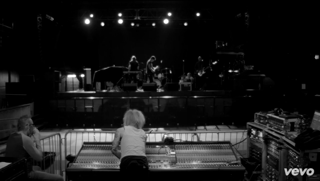
I first met Karen when she came through Café Dekcuf in Ottawa with Heathers. As I watched her take charge of the stage set-up and flip her MC7L board alone, I thought to myself: “damn, this is a woman I want to know!” I’m happy to say that she’s now a friend, and is always up for giving me some tech or life advice. I asked her a few questions about her experiences as a sound tech before she headed out on a US tour with July Talk.
Karen describes the best part of touring as travelling and “being able to be a part of something special and unique each night. I feel incredibly lucky to be included in some of the magic I’ve been a part of since 2009. The artist trusts you as a sound person to convey to the world what they’ve poured their hearts and souls into! It’s a pretty incredible thing.”
She also thrives on “working in a new venue every day, with different gear and different challenges; sometimes it’s great, and sometimes you need to figure out how to make it great.” She acknowledges that being faced with different set ups every day can be difficult, but that this is what ultimately makes you a better tech. When given the chance, Karen loves to work with Midas Heritage 3000’s and DigiCo Consoles, Waves plug-ins, outboard graphs, TC Electronic D-Two’s, Sennheiser 421’s and Avalon 737’s.
Her biggest dislike of touring is the food: “When you’re not privy to catering it can be pretty awful at times… I try to stay as healthy as I can on the road, but sometimes gas station bananas don’t cut it and you just need to hit the In-&-Out to animal style your night!”
For those looking to get into touring, Karen says some must-have skills are being patient, having a sense of humor, knowing how to Tetris gear, being understanding, open to learning, and knowing how to multi-task.
In regards to finding the right artists to work for, she adds: “if it feels good, do it. If it doesn’t, it’s not worth it. I’m referring to working with/for people who make you a better person and give you a sense of accomplishment, happiness and respect. I’ve been on tours (and know a lot of people who are/were on tours) that were not great experiences mentally or emotionally. Why put yourself through that? At the end of the day it’s all just rock and roll, we’re all here for the same reason. Touring work needs to be supportive, respectful and professional. If you can’t count on your road family, then you need to find a new one.”
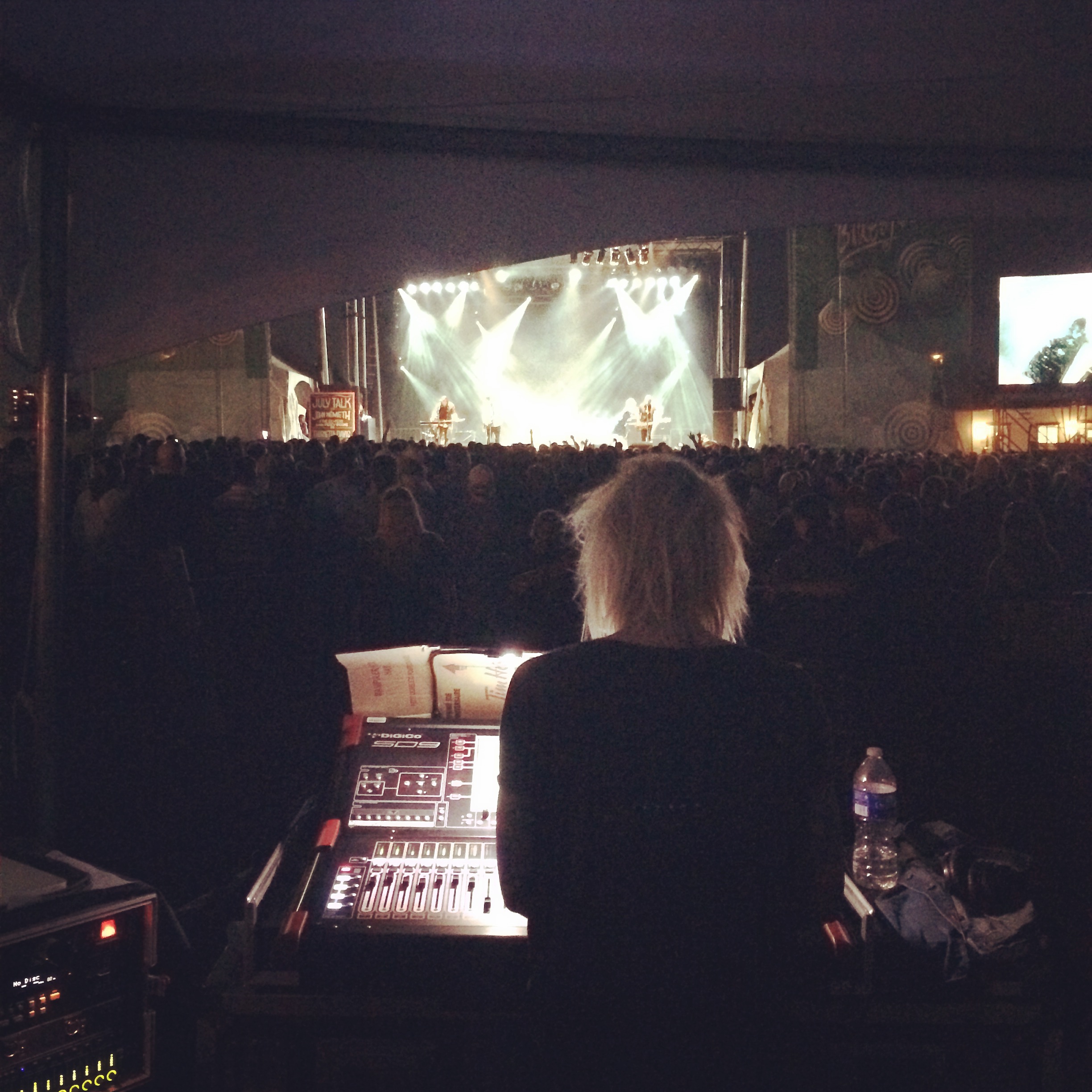 Much like many women in this industry, Karen has experienced sexism, both on the road and while at her house gigs. She believes the industry is slowly changing but still considers sexism to be the biggest obstacle she faces on a regular basis. She has been told by venue techs that she isn’t mixing the show and even been laughed at when she has announced herself as the band’s sound tech. When faced with these situations, Karen’s advice is to tackle them head-on! She explains: “I wouldn’t ever want the women in my life to feel like they don’t have a voice to be heard, so I try to live my life like that when I’m faced with less than ideal situations. Speak up, do your job the best you can and don’t ever let people make you feel like anything but their equal. Being quick thinking and tactful makes it easier to have the upper hand. Let your work speak for itself. Sexism is someone else’s problem, not mine, and I won’t let it be mine. Don’t get me wrong, I do meet more incredible people than not, some of whom have become some of my closest friends, and in the coming years I’m sure whatever is left of [sexism] will be on it’s last legs.”
Much like many women in this industry, Karen has experienced sexism, both on the road and while at her house gigs. She believes the industry is slowly changing but still considers sexism to be the biggest obstacle she faces on a regular basis. She has been told by venue techs that she isn’t mixing the show and even been laughed at when she has announced herself as the band’s sound tech. When faced with these situations, Karen’s advice is to tackle them head-on! She explains: “I wouldn’t ever want the women in my life to feel like they don’t have a voice to be heard, so I try to live my life like that when I’m faced with less than ideal situations. Speak up, do your job the best you can and don’t ever let people make you feel like anything but their equal. Being quick thinking and tactful makes it easier to have the upper hand. Let your work speak for itself. Sexism is someone else’s problem, not mine, and I won’t let it be mine. Don’t get me wrong, I do meet more incredible people than not, some of whom have become some of my closest friends, and in the coming years I’m sure whatever is left of [sexism] will be on it’s last legs.”
Karen’s long-term goals are to keep working on her mixing skills and to continue touring with great people. She also notes that she never wants to stop learning, and wants to keep surrounding herself with people who inspire her to do better and to be better – this applies to both her personal and work life. I have no doubt she will accomplish these, as she is one of the most hard-working people I have ever met! I wish Keeks all the best on her future tours and thank her for taking the time to answer my questions.
If you would like to contact Karen, she can be reached at standbygold@gmail.com

This time last year, I was finishing my first professional tour as Front of House/Tour Manager. Although I no longer work for the band that took me out, I can look back on the experience and appreciate all that I learned – first tours are often very much a trial by fire! (more…)
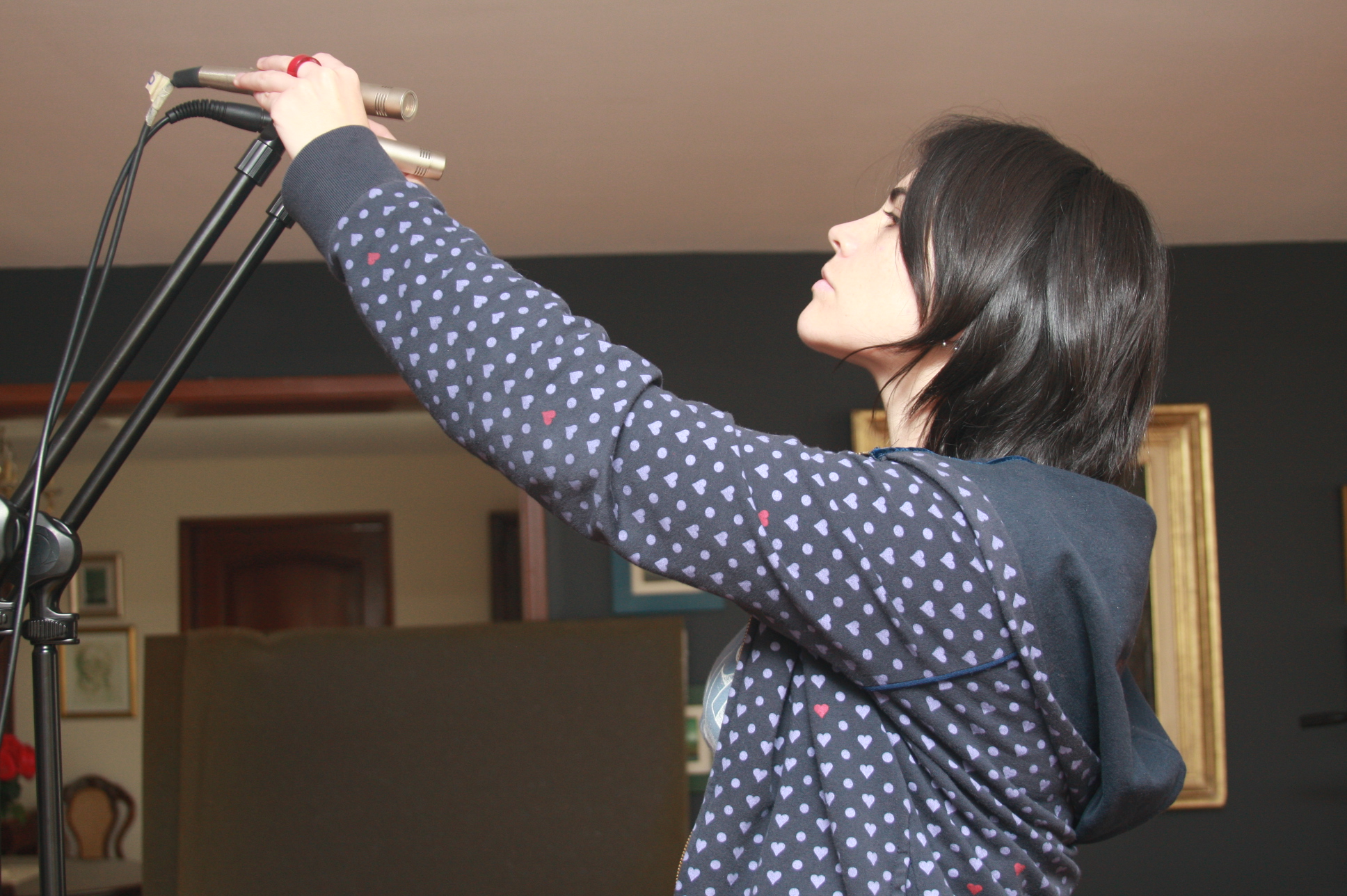
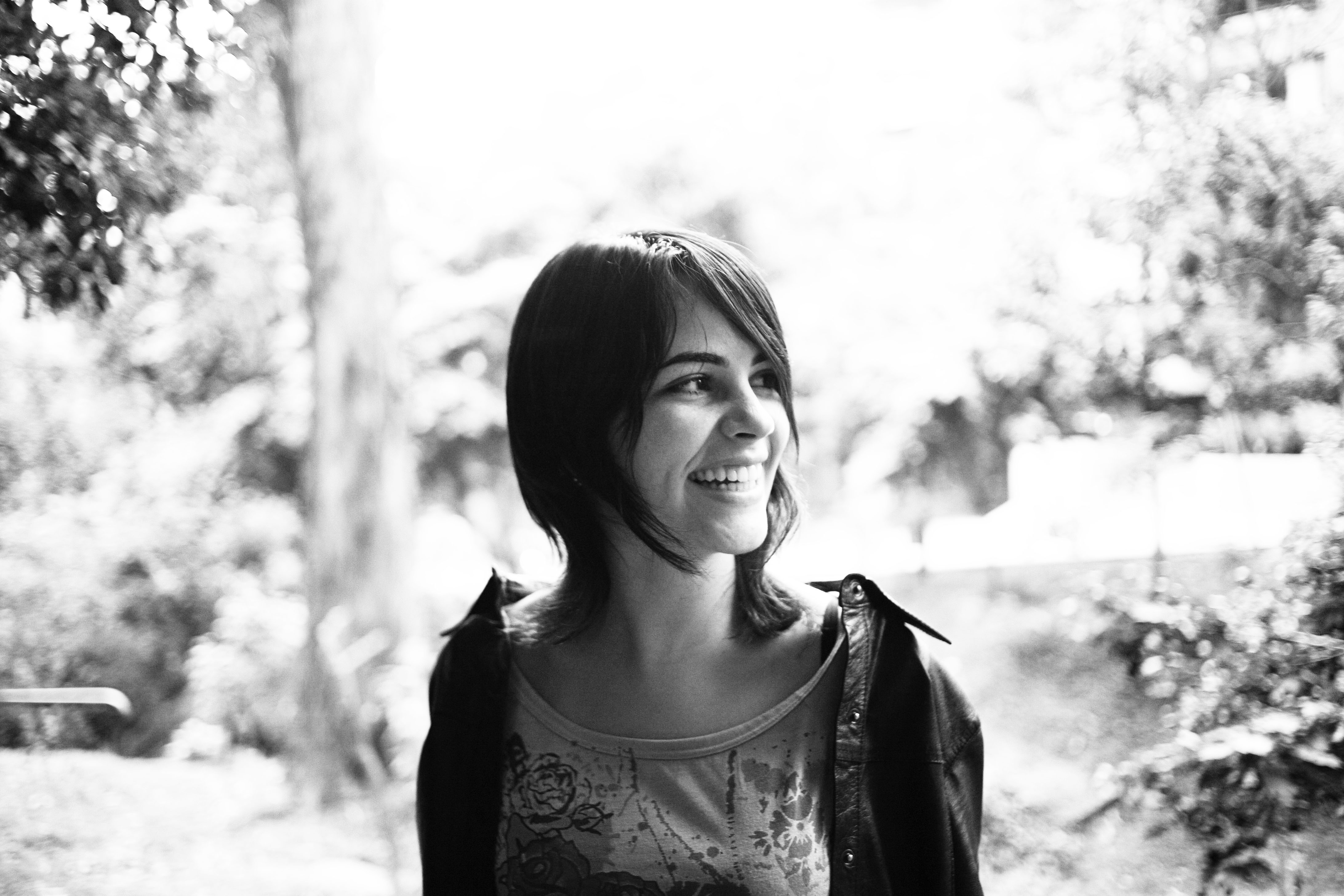 Maria Elisa Ayerbe Barona grew up in Colombia and is a recording and mixing engineer, sound designer, and audio educator. (more…)
Maria Elisa Ayerbe Barona grew up in Colombia and is a recording and mixing engineer, sound designer, and audio educator. (more…)
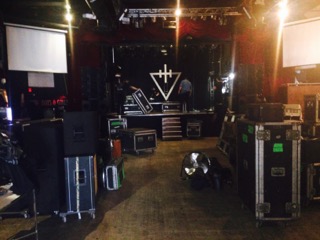
It’s been close to five months since I’ve moved to Toronto to work as a monitor tech. From at least partially conquering my fear of digital boards to working on my people skills, here are some of the more important lessons I’ve learned. (more…)

What goes into being a great tech that engineers request or want to work with? The first in a series of articles on system techs and their advice on what it takes to be a great tech.
Suzy Mucciarone started out as a stage tech and now is well respected system and Engineer and FOH Tech. (more…)
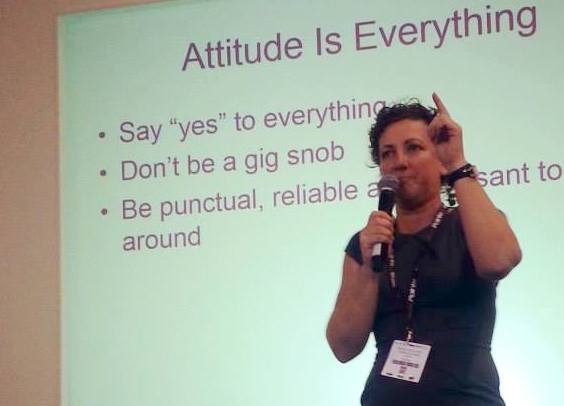
 Creator of Soulsound Agency and the Soulsound.co.uk website and resource centre, Darry de la Soul, has been an engineer and educator. She is passionate about taking the knowledge she and other engineers have gained through experience and passing it on and helping qualified people find work.
Creator of Soulsound Agency and the Soulsound.co.uk website and resource centre, Darry de la Soul, has been an engineer and educator. She is passionate about taking the knowledge she and other engineers have gained through experience and passing it on and helping qualified people find work.
Darryn found herself getting into the world of audio for the same reason many have, because of her love of music. While managing a London nightclub for much of her late 20s, she was more interested in the DJ equipment than tallying the nightly bar take. This prompted her to attend a specialist audio engineering college where she studied studio sound (live sound was not available as an option). Darryn recalls the course was “a revelation in fabulousness and wonder, and I had the time of my life whilst studying.”
Darryn considers herself a bit of an all-rounder, not specializing in FOH or Monitors, Studio or Live. Her very first engineering job was as a full-time assistant in the London venue- 93 Feet East. It was unusual in two ways; one- to start out in an assistant position and Two- that the venue had two full-time engineers. Her job was as assistant to engineer Paul Epworth of Adele fame, whom Darryn has called ‘a total genius.’ She credits Paul as helping her manage the crossover from studio to live sound with only a few ‘deeply embarrassing’ mishaps. She landed the job after assisting Paul on a Royksopp gig during which she managed to fix their sampler.
The venue had a capacity of around 200 and had a Funktion One system installed. Darryn quickly became a devoted fan of the purple boxes.
“After I went freelance, I spent a lot of time working in nightclubs and with one particular promoter who did a lot of obscure electronics, and fabulous electronics/classical crossover events. My secret name for these was “Spawn of the Aphex Twin,” and I had enormous amounts of fun making things go with low budgets, in odd spaces, and with spectacularly odd humans.”
Darryn faced many of the same obstacles that we all do starting out like; “earning enough money to pay the rent (even the assistant’s job paid so badly I was paying my utility bills on credit cards), spiraling debt, and once I’d started freelancing, having no-one but my own mistakes to learn from.”
“I think this is the most difficult thing for people starting in this career. Most entry-level work is solo, so your knowledge base easily stagnates without the influence of more experienced people. Most other jobs in the world are team-based in one way or another, so there is always someone more advanced to learn from. When you fight your battles completely alone, it’s easy to fall into bad habits that stem from ignorance rather than purpose.”
She has never thought that being a woman in a man’s world has held her back. Darryn has also felt that bands liked having her around because “women tend to be more amenable to being that extra bit helpful beyond the call of duty – when it comes for looking out for people (and their feelings), being a bit motherly and so on. I also think having a woman on the bus also reduces the amount of porn being watched in the lounge, which probably suits some men very well too:-). “ Darryn doesn’t believe that men and women differ when it comes to technical skills, “when it comes to mixing, I don’t think there’s a lot of difference. Good or bad hearing is not gender-specific.”
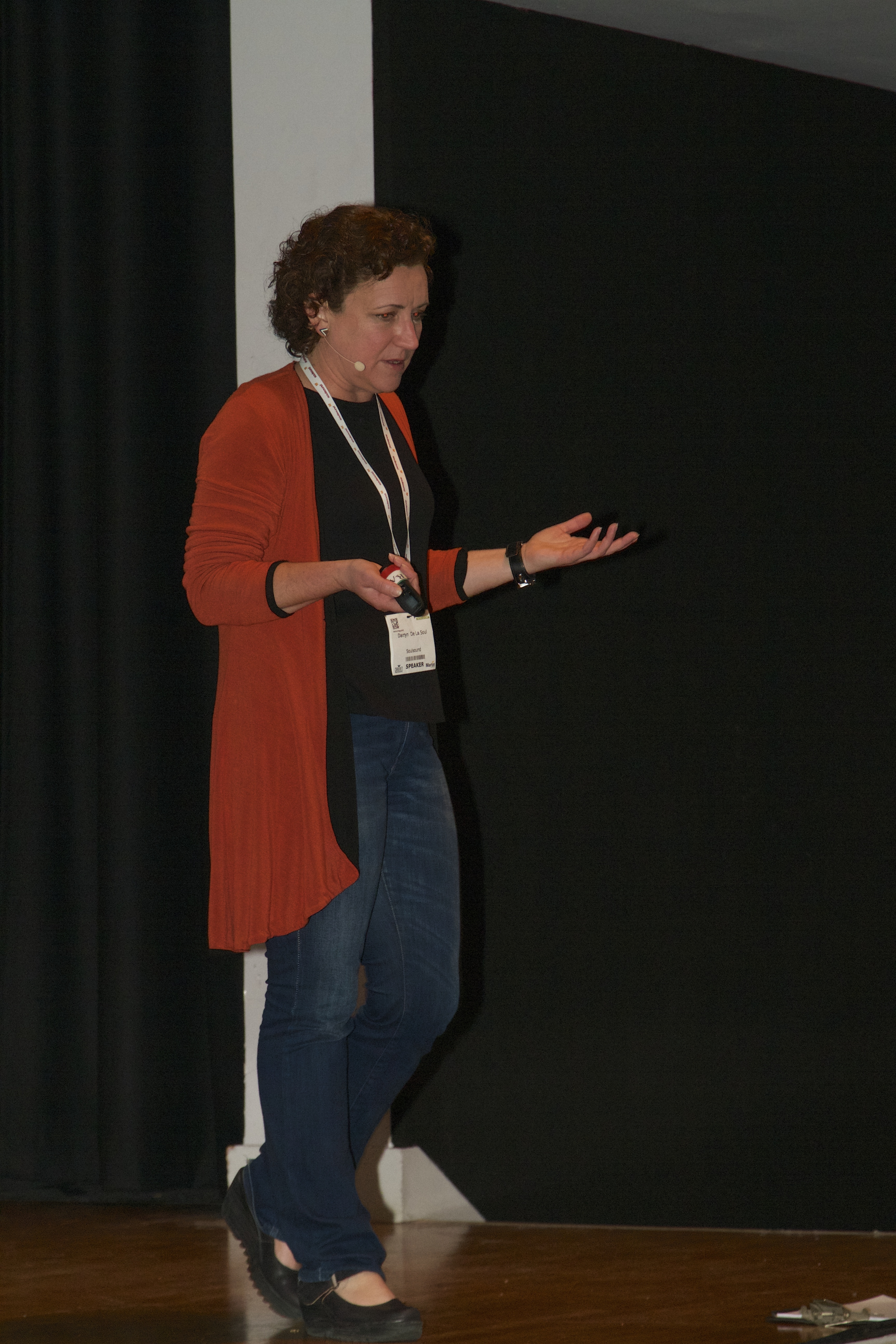
“In 2009 my old college asked me if I would help set up a Live Sound course and teach maybe three days a week. A couple of months into the set-up process and it was clear that it would be a full-time position, as someone needed to do it! So I ended up being “mommy” of the course with people like Marcel van Limbeek and Justin Grealy regularly lecturing, and Jon Burton putting in the occasional guest appearance. All three are now mainstays in Soulsound.”
“At first I tried to keep a few gigs going on the weekends, but running a college course is pretty full-on, and I couldn’t keep up the pace of living in the daytime during the week and at night on weekends. So sadly, I had to wind down the gigs. In the end, though, it was the right decision for me as I feel like I have now found my niche.”
After four years of teaching at Alchemea, Darryn started Soulsound Agency. The idea came as the result of the college course being so successful at creating highly employable, entry-level engineers. Darryn had been using her extensive connections in the industry to find work experience for students and paid work for graduates. During a conversation with one of the graduates she had placed, she learned that the graduate was making more money (through all of the work Darryn had found for him) than she was earning. She realized that all of her time and effort in procuring work for the students was worth something and Soulsound Agency was born. Darryn continued helping graduates find work and slowly built up enough business to be able to quit her job. “I was never very good at working for other people,” she says.
That was in 2012, and the business has grown so much that in 2014 Soulsound kept about 70 engineers in all or some of their income, a fact that Darryn is very proud of.
Along with finding work for qualified engineers, Soulsound.co.uk has an extensive Resource Centre, which is a lifelong learning resource for sound engineers that Darryn along with Justin, Marcel, and Jon developed. Soulsound’s goal is to plug the real-life gaps in formal education and support engineers throughout their careers. Soulsound does this with stand-alone masterclasses, tutorials, interviews, insights, career development and ‘whatever else takes our fancy,’ says Darryn. The great thing about not being restricted to a course curriculum is that we can delve into subjects not often dealt with in classrooms (like bathroom etiquette on a tour bus). We can also take advantage of opportunities, like following Jon Burton around with a camera (or four) while he was working in Brixton Academy (London’s most famous venue) with Bombay Bicycle Club.”
“We are very flexible and so are very good at grabbing opportunities when they are in front of us. We also make an effort to interact personally with our members, and present live seminars whenever we can, particularly at PLASA and other trade shows.”
Darryn is passionate about Soulsound. “I really love what we are doing – which is largely emptying the brains of brilliant engineers onto video, encouraging the pursuit of excellence, and showing people how good they can be!”
What are some of the most important lessons you’ve learned through your career?
One thing I learned early on is that you should do the gigs you don’t feel like doing. The days you really, really don’t feel like getting out of bed – those are the days it’s essential that you do. Those are the gigs you will either learn something amazing, meet someone who will have an influence on your career or find your next band to tour with.
Every gig you ever do will have an influence on your skills and career. No gig too small, I say! Just get out there and do everything that comes your way – don’t be a gig snob… You might not like the genre or the venue or whatever but do it anyway.
What advice would you offer to someone interested in a career in Live Sound?
Do it! It’s one of the best ways to earn a living imaginable. But be prepared for long hours, dirty hands and probably a bit of a struggle when you start out. It’s not an easy choice, but it is a very rewarding one.
And keep learning. If you’re fresh out of college, you’re just at the beginning of your journey. You can never know too much about this game. Learn online, from books, from manufacturer-led training, from each other. Go to as many gigs as you can and watch the engineer – learn from their mistakes, as well as your own.
Meet as many other engineers as you possibly can – being friends with people is a very good way of getting more work, and learning from their experiences.
It’s also worth keeping your eyes open for the many paths that cross with live sound, which may be a better fit for you – consider tour managing, production managing, booking, artist liaison, etc. There are many career opportunities in the live sector that are not directly mixing.
If you’d like more advice on finding (and keeping) work, download Darryn’s free ebook “Getting a Foot In the Door” and check out Soulsound.co.uk
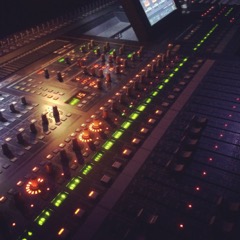
There seems to be an unwritten rule in audio – when you’re new to a bigger club, you start by doing monitors.
I’d been asking a friend about opportunities for work in Toronto for quite some time. So when she hooked me up with a job interview to be a monitor tech at The Mod Club, I knew I had to take it. (more…)